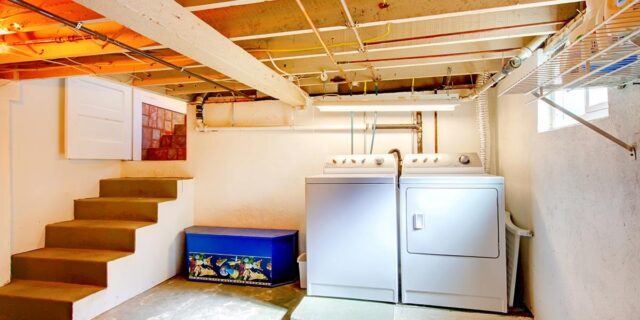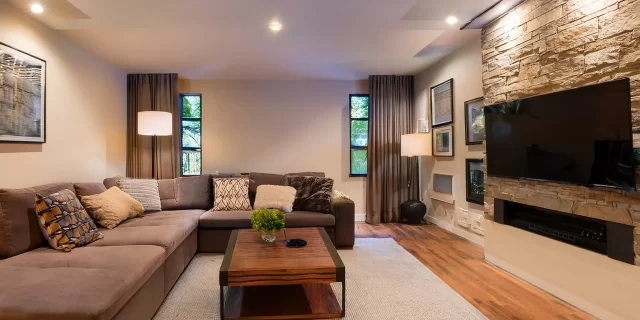The federal government is starting new support programs for construction workers. This is to help with a housing shortage that has become very serious. The Prime Minister even called it a “crisis.” Last year, the government managed to give out 44 billion taxpayer dollars. Most of this money went to an industry that was already very busy. Builders in many areas had to turn away potential clients because of high interest rates, costs to build, and long waiting times. Even with these tough times, the government promises that more homes built by more builders are coming soon.
Why This is the Perfect Time to Think About Adding a Room to Your Home
Recently, the government has made some changes. These changes aim to do two things. First, they want to cut down the red tape that can hold up homeowners when they want to make changes to their homes. Second, they want to offer new money options to help pay for those changes. The goal, shared in the latest budget, is to make it easier for homeowners to set up new rental spaces in their homes. If these spaces can be rented, they will bring in new money for the homeowner and provide needed living places for people. Even if the rent isn’t charged, the spaces will still help meet the important needs for accessibility that many families have.
Key Benefits of the New Loan Program for Extra Homes
- Access to Low-Interest Loans up to $40,000
Funds are here to help homeowners pay for some of the costs of making extra living spaces. These have become important as more people want rental homes and as cities try to fix the housing problem. Extras are being built everywhere—on city streets, in the yards of houses, on porches of townhomes, and in tough gated areas. - Mortgage Insurance Changes
The federal government plans to change its mortgage insurance rules. This will make it easier for homeowners to refinance if they add extra living units to their properties. These changes could lead to better loan terms or bigger loan amounts, making it cheaper and simpler for you to make extra spaces in your home. - Encouraging Densification and New Housing Options
Changes in zoning laws and help with funding are letting homeowners help with the housing issue. At the same time, they create cozy spots that are easy to use for tenants or family. When you put rental units in your home, you not only offer something needed by your family, but you also help make your community feel fuller.
Kozak Reno can show you how to make the most of these programs.
- Adding a separate suite to your home is a big step. The not-for-profit Kozak Reno Home Addition Company in Toronto can help you feel good about it. They have a reliable plan for building and for exploring new chances that come with adding a home. Here’s a simple outline of that plan:
- Kozak Reno works on home additions, especially in tough cases like turning basements, garages, and attics into legal and comfy living spaces. They understand the local zoning and building rules specific to the Greater Toronto Area (GTA). They can guide you through getting the permits you need to start your project.
- Full Management of Your Project From the first call to getting permits and the final inspections. Kozak Reno makes sure your project meets all federal and local standards. Their management service ensures that your basement transformation goes smoothly while helping you make the most of government programs.
- Kozak Reno offers custom designs that meet safety and accessibility needs. Whether you want a suite for older parents or a space for family members with disabilities, these areas are not only safe but also very usable. They let your loved ones feel independent while living close to you.
FAQ
What new rules are in Budget 2024 for homeowners who want to add rental units or family suites?
The 2024 budget introduced a new plan called the Secondary Suite Loan Program. This program gives low-interest loans up to $40,000 to homeowners in Canada. The purpose is to help with making “secondary suites,” which can be a basement apartment or a small home in the backyard.
Why is the government inviting homeowners to put extra suites in their homes?
It is partly about the number of people living close together. I believe we need to talk about what this means, especially in our city and town areas. There are several reasons this is useful and needed, and one part of this talk is about the growing options to rent homes in these places. The truth is we have a very low number of rental homes available.
How will the Secondary Suite Loan Program work?
It will let people apply for a low-interest loan of up to $40,000 to build extra suites in their homes. The money can be used for many things needed to make these suites real. This includes construction and finishing, which means things like flooring and final checks. It also covers necessary changes to make these spaces easy to use for people with disabilities. There are also a few other details that should not be ignored because they could lead to legal issues.
Are there any special updates to the rules for mortgage insurance?
The government wants to change the rules for mortgage insurance. This includes steps about refinancing, the largest amount you can borrow, and the home price. The goal of these changes is to help people who own single-family houses. They want to make it easier to add units to their homes, like a basement suite.
How do local zoning changes affect this initiative?
The new zoning changes from the Housing Accelerator Fund have made it easier for homeowners. They have lowered rules and costs. There are now fewer permits needed for adding extra suites in our biggest cities. These changes help to increase the number of homes in our city areas.
Can homeowners use this loan program to make living spaces easy to use for family members?
Yes, the program really helps in creating those deep, easily usable living spaces in homes.
What housing initiatives are included in Budget 2024?
The Budget 2024 includes a new $6 billion Canada Housing Infrastructure Fund as part of its housing plans. However, like many other steps designed to help more Canadians obtain housing, this fund relies heavily on support from the private sector, which is risky.
Is there any tax help for adding a suite to my home for a senior family member or an adult with disabilities?
Yes, that is right. The home-renovation tax credit started in 2023 lets you save up to $7,500 on your taxes if you build a suite in your home. This is only for someone living there who is over 65 or has a disability.
When will they present Budget 2024 in the House of Commons?
The Deputy Prime Minister and Minister of Finance will present it on April 16, 2024.
The government wants to find ways to make housing cheaper for people all over Canada.
The federal government started a plan called “Canada’s Housing Plan.” This initiative aims to partner with provinces and territories. The goal is to add 3.87 million new housing units nationwide by the year 2031.



